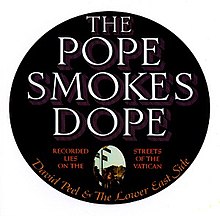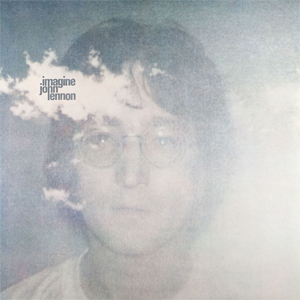
Imagine is the second studio album by British musician John Lennon, released on 9 September 1971 by Apple Records. Co-produced by Lennon, his wife Yoko Ono and Phil Spector, the album's elaborate sound contrasts the basic, small-group arrangements of his first album, John Lennon/Plastic Ono Band (1970), while the opening title track is widely considered to be his signature song.

Some Time in New York City is a part-studio, part-live double album by John Lennon and Yoko Ono as Plastic Ono Band that included backing by the American rock band Elephant's Memory. Released in June 1972 in the US and in September 1972 in the UK on Apple Records, it is the third album to bear Lennon's name since he left the Beatles, and his fourth with Ono. Like Lennon's previous solo albums, it was co-produced by Lennon, Ono and Phil Spector. The album's agitprop lyrics are politically charged compared to its predecessors, addressing political and social issues and topics such as sexism, incarceration, colonialism, and racism.

Double Fantasy is the fifth album by John Lennon and Yoko Ono, and the final one to feature Lennon before his death. Released in November 1980 on Geffen Records, the album marked Lennon's return to recording music full-time, following his five-year hiatus to raise his son Sean. Recording sessions took place at the Hit Factory in New York City between August and October 1980. The final album features songs from both Lennon and Ono, largely alternating between the two in its track listing. Other tracks recorded by Lennon from the sessions were compiled by Ono for release on Milk and Honey in 1984.

Live Peace in Toronto 1969 is a live album by the Plastic Ono Band, released in December 1969 on Apple Records. Recorded at the Toronto Rock and Roll Revival festival, it was the first live album released by any member of the Beatles separately or together. John Lennon and his wife Yoko Ono received a phone call from the festival's promoters John Brower and Kenny Walker, and then assembled a band on very short notice for the festival, which was due to start the following day. The band included Eric Clapton, Klaus Voormann, and drummer Alan White. The group flew from London, and had brief unamplified rehearsals on the plane before appearing on the stage to perform several songs; one of which, "Cold Turkey", was first performed live at the festival. After returning home, Lennon mixed the album in a day.
Elephant's Memory was an American rock band formed in New York City in the late 1960s, known primarily for backing John Lennon and Yoko Ono from late 1971 to 1973. For live performances with Lennon and Ono, the band was known as the Plastic Ono Elephant's Memory Band.

"Give Peace a Chance" is an anti-war song written by John Lennon, and recorded with the participation of a small group of friends in a performance with Yoko Ono in a hotel room in Montreal, Quebec, Canada. Released as a single in July 1969 by the Plastic Ono Band on Apple Records, it is the first solo single issued by Lennon, released while he was still a member of the Beatles, and became an anthem of the American anti-war movement during the 1970s. It peaked at number 14 on the Billboard Hot 100 and number 2 on the British singles chart.
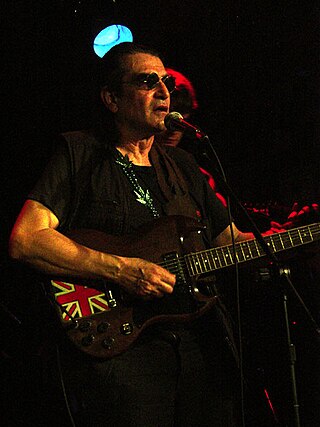
David Peel was a New York City–based musician who first recorded in the late 1960s with Harold Black, Billy Joe White, George Cori and Larry Adam performing as David Peel and The Lower East Side Band. His raw, acoustic "street rock" with lyrics about marijuana and "bad cops" appealed mostly to hippies and the disenfranchised.
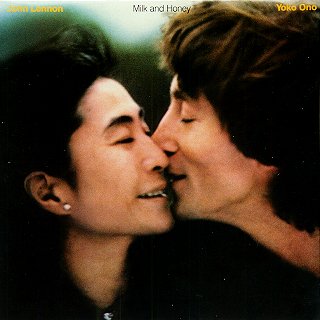
Milk and Honey is the sixth and final album by John Lennon and Yoko Ono, released in January 1984, three years after Lennon’s murder. It is Lennon's eighth and final album, and the first posthumous release of new Lennon music, having been recorded in the last months of his life during and following the sessions for his 1980 album Double Fantasy. It was assembled by Yoko Ono in association with the Geffen label.

Season of Glass is the fifth studio album by Yoko Ono, her first solo recording after the murder of her husband John Lennon. Season of Glass, released in 1981, reached number 49 on the US Billboard 200 albums chart, making it Ono's highest-charting solo album to date.

Yoko Ono/Plastic Ono Band is the debut solo studio album by Japanese artist and musician Yoko Ono, released on Apple Records in December 1970 alongside her husband's album John Lennon/Plastic Ono Band. Ono's album features her vocal improvisations against backing by the Plastic Ono Band, with the exception of the track "AOS", which is backed by the Ornette Coleman Quartet.
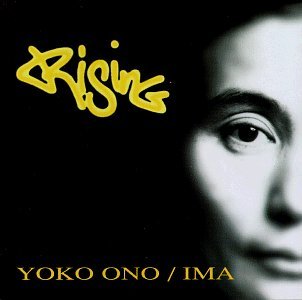
Rising is a 1995 album by avant-garde artist Yoko Ono. Released on 7 November by Capitol Records, it features the backing band IMA, which included Ono's son Sean Ono Lennon, Timo Ellis, and Sam Koppelman. It was her first album of new material since 1985's Starpeace. The album has sold 11,000 copies in the U.S. to date.

Fly is the second album by Yoko Ono, released in 1971. A double album, it was co-produced by Ono and John Lennon. It peaked at No. 199 on the US charts.

Approximately Infinite Universe is the third solo album by Yoko Ono, released in early 1973 on Apple Records. A double album, it represents a departure from the experimental avant garde rock of her first two albums towards a more conventional pop/rock sound, while also dabbling in feminist rock. It peaked at number 193 in the United States. The 1997 CD reissue on Rykodisc added two acoustic demos of songs from this era, that were later released on 1981's Season of Glass. It was released again by Rykodisc in 2007.

Feeling the Space is Yoko Ono's fourth solo album, her last one on Apple Records.
"Well Well Well" is a song by English musician John Lennon from his 1970 album John Lennon/Plastic Ono Band. The eighth and longest track on the album, "Well Well Well" features an aggressive guitar sound, screaming vocals and a pounding backing track.
The Lower East Side Band was an American rock band from Manhattan, New York.

"Mrs. Lennon" is Yoko Ono's first single from her second studio album Fly, released in 1971. It was written and performed by Ono, and produced by Ono and her husband John Lennon. It includes the B-side "Midsummer New York". "Mrs. Lennon" was featured in the 1972 film Imagine.

"Sisters, O Sisters", also known as "Sisters O Sisters", is a song written by Yoko Ono that first appeared on John Lennon's and Yoko Ono's 1972 Plastic Ono Band album Some Time in New York City, backed by Elephant's Memory. It was also released as the b-side to the couple's "Woman Is the Nigger of the World" single. It has been covered by a number of artists, including Le Tigre and Tater Totz.
"New York City" is a song written by John Lennon that was first released on Lennon's and Yoko Ono's 1972 Plastic Ono Band album Some Time in New York City.

"Who Has Seen the Wind?" is a song written by Yoko Ono that first appeared as the B-side of John Lennon's single "Instant Karma!" It was later issued as a bonus track on a compact disc version of the Wedding Album.
